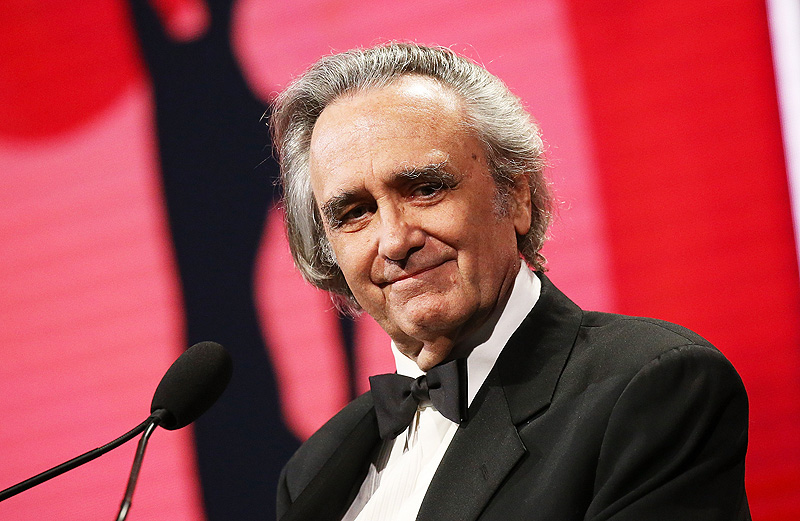ComingSoon.net was lucky enough to have a great 1:1 chat with directing legend Joe Dante (Gremlins, The Howling, The ‘burbs) about the new anthology movie he contributed to titled Nightmare Cinema which opens today in select theaters and on VOD! We also talked about his great new podcast The Movies That Made Me, why he never made a Stephen King movie and more! Check out the full interview below!
RELATED: Dante, Garris, Rourke and More Unleash Nightmare Cinema
A series of down-on-their-luck individuals enter the decrepit and spine-chilling Rialto theater, only to have their deepest and darkest fears brought to life on the silver screen by The Projectionist – a mysterious, ghostly figure who holds the nightmarish futures of all who attend his screenings. By the time our patrons realize the truth, escape is no longer an option. For once the ticket is torn, their fate is sealed at Nightmare Cinema.
The film features a slate of talented directors for the horror genre that is made up of Alejandro Brugués (Juan of the Dead), Ryûhei Kitamura (The Midnight Meat Train), David Slade (30 Days of Night), Joe Dante (Gremlins) and Mick Garris (Stephen King’s The Stand). It also features a large cast of heavyweights including Oscar-nominee Rourke, three time Golden Globe-winner Richard Chamberlain (Twin Peaks), Patrick Wilson (The Conjuring 2, Aquaman), Elizabeth Reaser (The Haunting of Hill House) and Adam Godley (Lodge 49).
Garris is also producing via his Nice Guy Productions. Courtney Solomon and Mark Canton from Cinelou and 2016 Blood List Alumni Joe Russo round out the rest of the producing team. Good Deed Entertainment’s Scott Donley and Lenny Shapiro, as well as The Fyzz Facility’s Wayne Marc Godfrey and Robert Jones will serve as Executive Producers, along with Cinelou Films’ Scott Karol.
Nightmare Cinema held its debut at the Fantasia International Film Festival in July 2018 and has earned highly positive reviews from critics, maintaining an 86% approval rating from critics on review aggregate Rotten Tomatoes based on 22 reviews. It is set for a limited theatrical and video-on-demand release on June 21.
RELATED: Fantasia: Joe Dante & Mick Garris on Nightmare Cinema & Spielberg
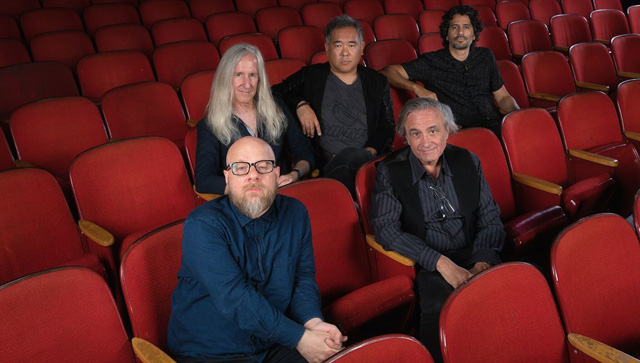
ComingSoon.net: Having met “Nightmare Cinema” producer Mick Garris I can say he’s an almost ludicrously amiable guy.
Joe Dante: The name of his company is Nice Guy Productions. (laughs)
CS: Exactly, exactly. What’s the worst argument you’ve ever gotten into with Mick Garris?
Dante: I don’t think I’ve ever gotten into an argument with Mick Garris. You know, the appeal of Mick is that he is just so happy to be doing what he’s doing. He’s a fan, as many of us are, who’s getting to do what he wants, what he likes. And also, he writes. He writes books and stuff, so his creative outlets are fulfilled. He’s also a guy who is pretty indefatigable in terms of pursuing his dreams. This movie “Nightmare Cinema” is something he’s been working on for 10 years. Ever since “Masters of Horror” went off the air, he’s been trying to reboot it as an international franchise, which would have multiple stories by filmmakers from overseas. And he was never able to get it up and running as a TV show, probably because anthology shows are hard to sell because you can’t amortize the sets. You can’t use them over and over again. You have to build new ones, so people don’t like that, unless you’re this movie studio, in which case you’ve got a backlot and you can repurpose the backlot so you can save money there. But if it’s an independent movie, you’ve got to go in a different location for every story. So that becomes pretty expensive. He managed to finally get this thing made as a feature film, what is, I think, hoped to be one of several feature films that might come out with that moniker. He managed to get it financed and produced and finished and shot. And I really take my hat off to him.
CS: It’s been almost a year since I’ve seen the film. In that interim, has there been any movement or is it kind of a wait and see now that it’s getting released?
Dante: Well, getting the picture finished is one thing, then getting a distributor is another. So there were production companies involved, who obviously paid to get the picture finished and make a print. But as far as getting it distributed, we’ve been fairly lucky because this company Cranked Up Films, who I frankly never heard of, has managed to get theatrical dates for this thing. And as you know, if you saw the movie with an audience, it’s an audience movie. It’s not a “watch it on your computer” movie. It’s an “oh my god, this is so much fun” with people who are having fun watching it. This genre in particular, this one and comedies, they need an audience. The movie feeds off the audience reaction. If you don’t have an audience, you don’t have any reaction. So we were really lucky to be able to score as limited a theatrical release as there is. I would like to think that people who do see it with an audience are going to come out talking about it to the point where we can get more people to see it or hold it over or whatever, or maybe get more theaters, I don’t know.
CS: Your segment is a lot more a pure horror film for you. It’s not very satiric like your usual stuff. It’s very gruesome. Has it opened people’s minds up a little bit to what you might be capable of within the genre? That you’re not just the zany horror comedy guy?
Dante: I don’t know about that. I think if anybody’s bothered to pay attention they probably know what I’m capable of and what I’m not capable of. So I didn’t take this as if I was proving anything. I did this basically to help make it out and try to get it made.
CS: That brings up an interesting point because guys like John Carpenter and John Landis and Don Coscarelli and all these amazing directors that did the “Masters of Horror” series have really had to struggle to get any features off the ground. When I look at a company like Blumhouse, which sort of prides itself on being a nexus of horror, I kind of wonder why they haven’t extended olive branches to the “Masters of Horror”?
Dante: Well, you may have noticed that the Masters of Horror are above a certain age. Which makes them, by de facto, less attractive than a younger filmmaker. It’s not just in this business, it’s in any business. You could be a great baseball player, but once you get to a point where you can’t throw those hits, you’re going to be on the back bench.
CS: It bothers me because I feel like Blumhouse has the resources to make a few smaller movies with more seasoned, fan favorite directors. A few years ago they made movies with Joe Johnston and Barry Levinson, but they dumped both those movies.
Dante: Well, Blumhouse makes more movies than they actually plan to release. That’s the thing. It’s true. There are legendarily a number of pictures on the shelf that they just didn’t feel were worth the effort to release, even though they made them. They just keep making a lot of them. Miramax used to do the same thing, used to make more movies than they could release, so they would just sort of sit there and half the time nobody would see them. It’s a business strategy, and if it works for them, obviously it does, they’re at the top of their game and I guess what they don’t want to do is they don’t want to sell me their image with a picture they think doesn’t work. And so, it ends up on the shelf. Sooner or later all of these things are going to be released on streaming.
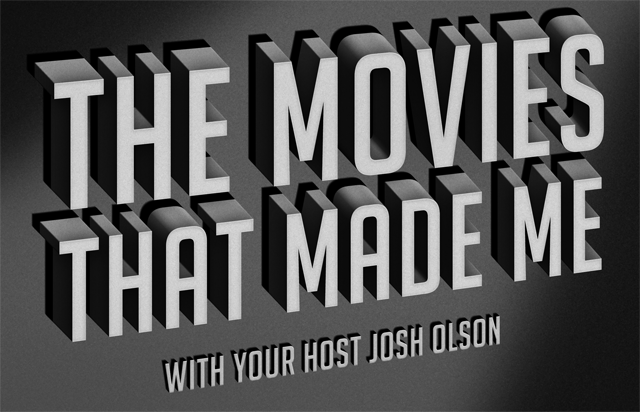
CS: I’ve been loving, loving, loving The Movies That Made Me podcast that you and Josh Olson have been doing. It’s become a Tuesday ritual for me.
Dante: Well, talk it up because we could always use more listeners.
CS: Yeah, it’s pure movie geekery, just mainlined into my veins. On the show you’ve been displaying your bravura knowledge of film. Now I remember reading once that Tarantino really liked the Woody Allen film “Anything Else.” And I was like, what? It was so out of left field. I was like, “Why does Quentin like that?” Given the broad amount of movies that you’ve seen, can you think of one movie you really love that fans would be surprised or shocked that you enjoy?
Dante: That’s an interesting question. Imagine that. An interviewer asked me an interesting question. Do you know how rare that is? That doesn’t mean it’s a question I can easily answer.
CS: Right.
Dante: I’m just trying to think of what is an uncharacteristic Joe Dante movie? It’d probably be something sentimental because I’m an easy crier, depending on—I cry at the end of “Night of the Hunter.” I’ll cry at anything. I can’t think of a title right now. I guess it’d probably be a Lubitsch picture, “Ninotchka,” is a great movie. I have tremendous lists of favorite movies that aren’t horror movies. Westerns, I love Westerns. I just did a podcast for somebody that was just about Westerns. I do tend to be typed, because I like the genre and I work in the genre. But when I have something to watch, I don’t necessarily put on a horror picture, you know?
CS: No, your knowledge base is clearly very, very wide. You’ve seen it all, as your co-host likes to say.
Dante: Well, I haven’t seen it all. I mean, nobody can see it all, but I have seen a lot. William K. Everson was a film writer that I used to read when I was a younger guy, and he was a walking encyclopedia of movies and he used to run screenings and he used to do notes and he would write books and all of that. I remember when he passed away, I just thought all of that knowledge, all that experience of seeing those movies has now passed away. And that will be true about everybody in my generation. Because we had a unique angle on these movies by seeing most of them when they were new, or certainly when we were new. And I don’t know that a current film buff has the ability to process the material the way that we did, you know?
CS: Yeah, or with the same urgency.
Dante: I mean, I was a big Ken Russell fan. I was a big Michael Powell fan. Anything from any good director like Sam Fuller. I could just watch their movies over and over, and I can usually, if I’m clicking a channel, identify the movie within a couple of seconds of seeing a shot.
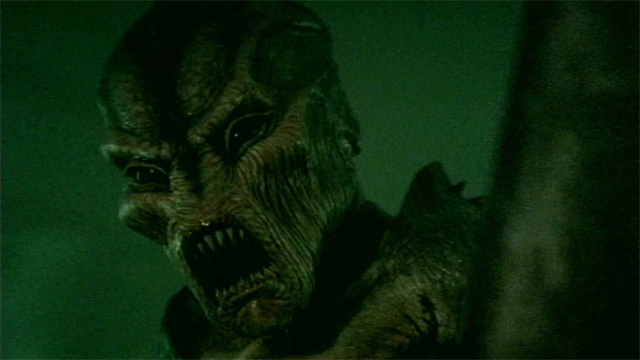
CS: You were talking about how you’re associated with the genre. What’s interesting is the rise of your career in horror movies perfectly dovetails with the ascent of Stephen King. I was surprised that you never did a film with him or with his work. Were you ever approached to do a Stephen King movie?
Dante: I remember reading the galleys of “The Tommyknockers” at some point in the 80’s. I can’t remember whether it was in the service of maybe adapting it for a movie or not. I think it ended up being a TV show.
CS: Yeah, it was a TV mini-series.
Dante: But that’s probably as close as I’ve come. I mean, Stephen King visited the set of “Gremlins” along with the guy who wrote “Ghost Story,” Peter Straub. I remember when they were there. Mick is the guy who has the Stephen King franchise, he and Steve are very close. No, everybody else was making Stephen King movies and I wasn’t because everybody else was doing them. So there wasn’t room for me.
CS: I think “Tommyknockers” is the one he wrote that he doesn’t remember writing because he was on coke.
Dante: Yes, yes, and interestingly when I read the galleys they were galleys with his writing, all sorts of scrolls all over it as if he was up all night just constantly changing and rewriting. (laughs)
CS: Is there any movement with the “Gremlins” TV show?
Dante: Well, I wouldn’t know because I’m sort of persona non grata in the “Gremlins” group. I think they were very unhappy with what I did with “Gremlins 2” and I think they’re trying to find ways to undo it and they’re discovering that it’s not as easy as they thought.
CS: There’s the line in the first movie that Dick Miller says, where he’s talking about how the real life origin of the word “Gremlins” comes from World War II, when Gremlins were on the planes. I feel like someone could do a prequel set in World War II, you know?
Dante: Well, we have talked about prequels, but usually not so much the World War II angle because that was actually done, Disney was going to do a “Gremlins” animated feature.
CS: With Roald Dahl.
Dante: Yes, and the book came out with the illustrations and everything. And then, for whatever reason, they didn’t make the movie. And there’s a Bugs Bunny cartoon with Gremlins. So I mean, it was in the zeitgeist at the time. But the discussions that I’ve had with people about doing prequels have always been about with the origin of Gizmo. Where does the Mogwai come from? And I think that it always leads back to China. And for a while, there was some interest because the people wanted to get into the Chinese market, and they thought, “We could get Chinese talent and shoot it partly in China.” But I think that the Chinese are not big on certain kinds of fantasy, and I’m not sure that this would really float their boat.
CS: Right. Anything supernatural is kind of iffy?
Dante: Well, not anything supernatural, but it’s a complex. They made a number of Chinese ghost story movies, but it’s tricky because the censorship is such over there that you really don’t know from one day to the next what is going to be acceptable and what’s not. So it makes it very difficult for people to plan.
CS: I recently read that you were once connected to doing a movie version of Jack London’s “The Sea Wolf” with Tom Hanks. Is that true?
Dante: Well, that is true. That is true. It was for Columbia and it was a good script. The reason that I didn’t make it was because they insisted on bringing on another producer and another company that I didn’t feel was needed. I and my producer were going to be sort of demoted and these people were going to take over. That’s not how I wanted to make this movie, and so I didn’t, but it was a good picture. It would’ve been a good role for Tom because it was pretty tough.
CS: Yeah, I’ve read that book. That’s the one where the guy and girl get rescued and then essentially become indentured servants on this ship.
Dante: Right, right, but this is a modern take on it. It wasn’t a period picture.
CS: Oh so it would’ve been a little bit like “Captain Phillips”?
Dante: I guess. I haven’t thought about this in, what, 30 years.
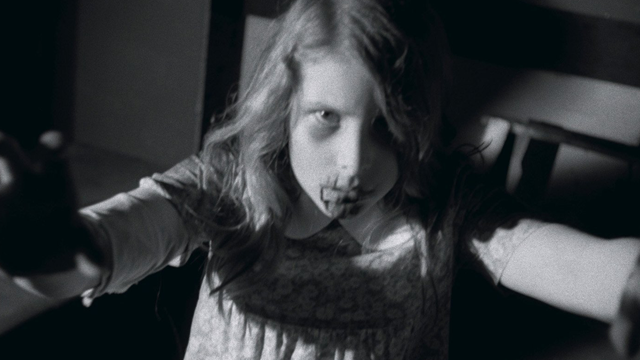
CS: My last question is one I talked about with Eli Roth, but I bet you have a good answer for it: When the Criterion Collection edition of “Night of the Living Dead” came out I put it in my player and was like, “Oh my god. I have never seen this movie look so beautiful, it looks like it’s fresh from the lab. It doesn’t have any grain, any cut frames. It’s not washed out.” Then, as I continued to watch it, I was like, “I kind of miss the grain. I miss the washed out. I miss the cut frames.” It made me wonder, are there certain movies that are better if they’re not restored?
Dante: Well, you know, “Night of the Living Dead” is a movie that went into public domain so fast and so many people who saw it saw substandard copies of it that they think, “Oh, that’s the way I remember it.” That’s not really the way it should look. That’s not the way it looked when it came out of the lab. That’s not the way it looked when they made the first prints. We do feel sometimes that if it doesn’t look the way it did when we saw it, that it isn’t right. And that goes with screen ratios and pan and scans and all that kind of stuff. I mean, people don’t realize how lucky they are to live now in an era where all these movies are transferred as close to the original as you can get, and they’re almost always in the correct ratio and the TV screens now reflect that and the sound systems are better and people can have presentations in their homes that are easily as good or better than at their local multiplex. And so, I don’t think we can hang onto the fiction as some people have tried to do that 35 millimeter is the greatest medium of all time. It is a terrific medium for storage. It’s the only way you can store things. If it doesn’t exist in 35, it doesn’t exist. But as far as presentation goes, I just happened to be running “Gremlins 2” at the Egyptian in Hollywood, and the there was something wrong with the soundtrack on the print from Warner Bros. So they said, “Well, let’s put up a Blu-ray and see if you want to run a Blu-ray instead.” And I thought, “A Blu-ray, are you kidding me?” By god, the Blu-ray looked better than the print and it sounded better than the print. So I think I just have to admit that the technology is here to make these movies look better than they ever looked before. The only question becomes how good is too good, you know? Do you need a 4K version of a movie that shows you that, “Uh oh, there’s a ladder in the shot that I never saw before.”
CS: Yeah, I was watching a 4K of “Batman Returns” and I was noticing flaws in the set, and actors’ makeup looked weird. I don’t think it was intended to be seen with that level of clarity.
Dante: No, it wasn’t, and that’s why when they did “The Tonight Show” on HD, they had to change the set because it was so shabby looking that people could see all the nicks and all the scrapes and cuts and stuff. And the makeup was wrong. You had to have different makeup for HD than you did for normal. But you have to roll with the punches. I mean, the technologies are here. People are going to use them and you just have to adapt them to make things look as good as they can.
CS: Right, yeah, yeah. I was just thinking of movies that Vinegar Syndrome or Kino or Arrow put out that are so beautiful and carefully restored, but I’m like, “Did THIS movie really deserve this?”
Dante: Yeah, I know. When you’re looking at a movie like “Pieces,” which you probably saw in a grindhouse with scratches and green marks all over it, and you think, “Boy, this picture looks really good. It doesn’t seem like I’m watching it in a grindhouse.” But then, we saw what happened when Quentin released his “Grindhouse” movie, which he went to the trouble to try to make prints look like you were in a grindhouse. A) The picture didn’t make money because nobody knew what a grindhouse was, and B) it didn’t make money because it was a double bill and half the people going in didn’t realize there were two pictures and left before the second one came on.
(Photo Credit: Getty Images)
